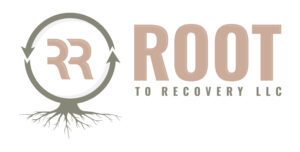 Mothers’ Postpartum Depression is real, and it can happen to many mothers. Between sleepless nights, depressed feedings, and the constant needs of a newborn, it’s no surprise that many new mothers experience a range of emotions in the postpartum period. However, for some mothers, these feelings can escalate into a more serious condition known as postpartum depression.
Mothers’ Postpartum Depression is real, and it can happen to many mothers. Between sleepless nights, depressed feedings, and the constant needs of a newborn, it’s no surprise that many new mothers experience a range of emotions in the postpartum period. However, for some mothers, these feelings can escalate into a more serious condition known as postpartum depression.
Mothers’ postpartum depression is a type of depression that affects women after giving birth. It can develop anytime within the first year after delivery and is caused by a combination of physical, emotional, and hormonal factors. Symptoms may include sadness, anxiety, fatigue, and difficulty bonding with the baby. Although postpartum depression is a common condition, many mothers feel ashamed or embarrassed to seek help, which can lead to long-term consequences for both the mother and child.
This blog will discuss how young mothers can seek help for mothers’ postpartum depression and manage their mental health effectively.
What is Mothers’ Postpartum Depression?
Mothers’ postpartum depression is a depression that affects mothers after childbirth. It typically occurs within the first few weeks after delivery but can also develop later.
Symptoms of PPD can vary, but they often include feelings of sadness, hopelessness, and fatigue. Other symptoms may include difficulty sleeping, changes in appetite, and a lack of interest in activities that were once enjoyable.
Various factors, including hormonal changes, stress, and lack of sleep, can also cause PPD. Therefore, it’s important to seek help for PPD as soon as possible, as it can significantly effect a mother’s ability to care for her child.
Seeking Help for Postpartum Depression
If you’re a young mother who is struggling with postpartum depression, there are several steps you can take to seek help:
Talk to Your Doctor
One of the first steps in seeking help for PPD is talking to your doctor. Your doctor can help you identify the symptoms of postpartum and refer you to a mental health professional if necessary. They may also be able to prescribe medication to help manage your symptoms.
Reach out to a Mental Health Professional
A mental health expert, such as a counselor or therapist, can provide postpartum support and guide you on managing your PPD. Therapists can help you identify the underlying causes of your depression and develop strategies for managing your symptoms.
Mental health professionals can also provide you with coping techniques to help you deal with the stressors of motherhood.
Join a Support Group
Joining a support group can be a helpful way to connect with other mothers who are going through or have gone through postpartum depression.
Support groups can give a sense of community and help you feel less alone in your struggles. They can also provide you with practical advice and coping strategies.
Take Care of Yourself
While other approaches are important, taking care of yourself is also crucial when managing PPD. Eating a healthy diet, getting enough sleep, and engaging in regular physical activities are a few ways to look after yourselves. Besides that, you should make time for activities that bring you joy, such as reading or spending time with friends.
Caring for yourself will not only help you manage your PPD, but it will also help you be a better mother to your child.
Talk to Your Partner & Family About Mother’s Postpartum Depression
It’s essential to have a support system in place when dealing with PPD. Talk to your partner and family about your struggles and how they can support you.
They may also be able to provide you with practical help, such as taking care of your child while you rest. Furthermore, they can provide emotional support and be a source of encouragement and motivation.
Consider medication
In some cases, medication may be recommended as a treatment for mothers’ postpartum depression. Antidepressant medications can help alleviate symptoms of depression and can be prescribed by your healthcare provider. It’s crucial to talk to your healthcare provider about the benefits and risks of medication and to make an informed decision about whether it’s right for you.
Who Is at More Risk of Developing This Depression?
Although mothers’ postpartum depression can occur in any new mother, certain factors can increase the likelihood of developing this condition.
Age
Young mothers, particularly those under 20 years old, are more likely to develop postpartum depression than older mothers.
This may be due to several factors, such as limited social support, financial stress, and lack of experience with motherhood.
Lack of Social Support
Young mothers who feel overwhelmed, isolated, or unsupported may develop postpartum depression. Not having enough social support may make their case even worse.
Previous History of Depression
Mothers who have gone through a phase of depression or anxiety in the past also stay at risk of developing postpartum depression after childbirth. Consulting a mental health professional at Root to Recovery can help you in this phase.
These are only a handful of the common factors that we’ve talked about. However, other factors may raise the risk of PPD, such as having bipolar disorder, a baby with bad health, issues with breastfeeding, relationship problems, lack of financial support, and more.
Conclusion
Postpartum is a common health issue that affects many new mothers, but it’s important to remember that it’s treatable. If you’re a young mother who is struggling with mother’s postpartum depression, this blog post discusses several steps you can take to seek help.
Remember, seeking help for PPD is a sign of strength, not weakness, and taking care of your mental health is essential for being a great mother to your child.

